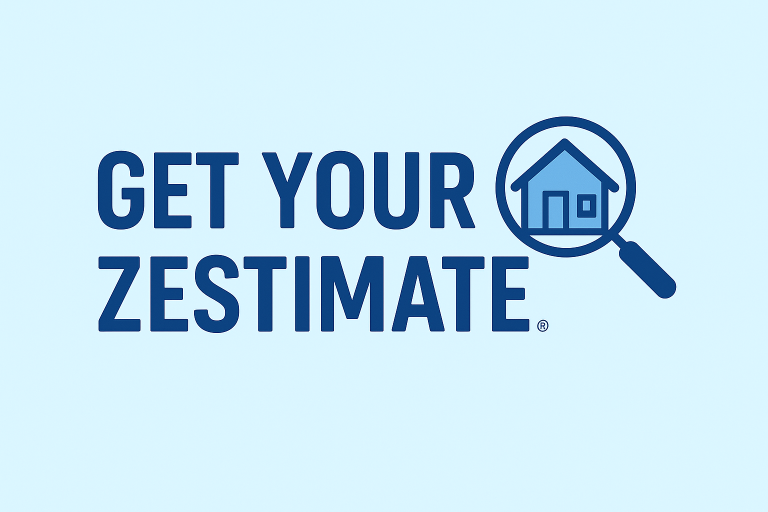
Table of Contents
Small Business Loans For Doctors
Introduction
Operating a medical practice in the United States entails not just medical know-how but also the availability of huge amounts of money. Whether establishing a new clinic or even growing an existing practice, the expenses can prove to be staggering. This is where Small Business Loans For Doctors take over. These lending facilities are put in place to assist doctors, dentists, and other medical specialists in covering startup expenditures, buying equipment, hiring personnel, and ensuring seamless cash flow.
Physicians frequently encounter special difficulties when obtaining business funding. With high incomes but plenty of student debt, many doctors struggle with conventional loan approval. Medical practices also need state-of-the-art equipment, innovative technology, and valuable office space—all significant investments. Thankfully, the American financial market provides a diverse array of Small Business Loans For Doctors designed to meet healthcare professionals’ individual needs.
This article investigates why physicians require small business loans, what kind of loans are on offer, how to qualify, and what to look for when selecting the ideal funding solution.
Why Doctors Need Small Business Loans
Physicians tend to underestimate the cost of maintaining a practice. The expenses go way beyond rent and utilities. Some of the most popular reasons for obtaining Small Business Loans For Physicians are:
1. Opening a New Practice
Starting a practice in the U.S. can range from $70,000 to $250,000 depending on the location and specialty. This would cover space, licenses, insurance, and working capital. A loan can help supply the funds needed to start up without depleting personal reserves.
2. Buying Medical Equipment
Quality medical equipment is necessary but very costly. MRI machines, ultrasound equipment, dental chairs, and diagnostic equipment can be in the range of hundreds of thousands of dollars. Small Business Loan For Physicians enable doctors to finance these expenses over time instead of paying in full upfront.
3. Building a New Practice
When patient bases expand, physicians might require larger office space, more employees, or better technology. Expansion is facilitated by loans without interfering with cash flow.
4. Buying an Existing Practice
Rather than beginning from scratch, most physicians prefer buying an existing practice. This demands a hefty initial investment, which is covered by Small Business Loans For Doctors
5. Controlling Working Capital
Medical practices tend to have protracted waits for insurance payments, resulting in short-term cash flow shortages. A small business loan or line of credit guarantees bills, wages, and operational expenses are paid within time.
Types of Small Business Loans That Are Available to Doctors
Physicians in the United States have numerous types of lending options available to them. Each has its own terms, benefits, and restrictions.
SBA 7(a) Loans
The most widely used by medical professionals is the SBA 7(a) Loan Program. These loans, guaranteed by the U.S. Small Business Administration (SBA), can reach up to $5 million and have favorable repayment terms. They are also flexible, as they can finance nearly any business expense, such as real estate, working capital, and equipment.
SBA Microloans
For modest financing requirements, the SBA Microloan Program offers a maximum of $50,000. These are perfect for financing startup expenses, equipment purchases, or advertising for new practices.
SBA Community Advantage Loans
This program helps underserved markets with financing of up to $250,000. It’s an excellent choice for doctors who practice in rural or low-income communities.
Traditional Bank Loans
Traditional banks also offer Small Business Loans For Doctors with competitive rates. Nevertheless, they usually come with strong credit history and collateral, thus making them difficult for new doctors with student loans.
Business Lines of Credit
A line of credit for a business offers convenient access to money as it is needed. Physicians can borrow money during cash flow shortages and pay only the borrowed amount. This is especially useful when insurance reimbursements are slow
Equipment financing enables physicians to acquire costly medical equipment without paying the full amount upfront. Often considered a form of Small Business Loan for Doctors, this option uses the equipment itself as collateral, making financing more accessible and easier to obtain for medical professionals.
Equipment Financing
Practice Acquisition Loans
Banks and specialty lenders typically provide Small Business Loans for Doctors who want to purchase established medical practices. These loans not only cover the purchase price but may also include working capital to support operations during the transition period.
SBA 7(a) Loans in Dept.
SBA 7(a) Loan is usually the first option for medical professionals. It is unique due to its flexibility and government guaranty
Maximum Loan Amount: $5 million
Repayment Terms: up to 10 years for working capital, up to 25 years for real estate
Interest Rates: Competitive Prime + spare
Collateral: For loans in excess of $350,000, but frequently negotiable
Eligibility: Good business plan, good credit score, demonstration of ability to repay
For physicians: SBA 7(a) loans are especially useful since they can finance several needs at the same time, ranging from office renovation to equipment acquisition.
Other SBA Options for Physicians
Although the SBA 7(a) loan is the most popular choice, doctors can also benefit from other SBA-guaranteed programs when seeking Small Business Loans for Doctors. For smaller, short-term expenses, SBA Microloans are often the best option. Physicians working in underserved communities may qualify for Community Advantage Loans, which combine financial support with a social mission. These government-backed financing options come with favorable terms, making them more accessible for medical professionals compared to traditional lending.
Non-SBA Financing Options
Not all physicians are eligible for SBA loans, and others like quicker funding. There are various non-SBA financing options available in the U.S. marketplace.
Traditional Bank Loans : Need high creditworthiness and collateral
Alternative Lenders : Have quicker approval time but can impose higher interest rates.
Physician-Specific Loans : Certain banks and financial institutions offer unique lending programs specifically for doctors, with flexible repayment terms
These options make it possible for even less-than-perfectly credentialed physicians to qualify for Small Business Loans For Doctors.
Loan Eligibility and Application Process
Approval for a loan involves meticulous preparation. The following are some of the primary factors considered by lenders when going over applications:
Credit Score : A credit score of 680 or more is a considerable boost to one’s chances of approval.
Business Plan : Lenders request an elaborate plan demonstrating revenue forecasting, market studies, and repayment plan
Financial Documents :Tax returns, bank statements, and evidence of income are a must.
Collateral: Certain loans require collateral like equipment or property.
Experience: Physicians with experience and years of practice or specialization are frequently deemed lower risk.
Applying for Small Business Loans for Doctors generally includes choosing the right lender, providing the necessary documentation, and waiting through underwriting and approval. Many physicians prefer Small Business Loans for Doctors backed by the SBA, though these may take several weeks for funding. On the other hand, alternative lenders also provide Small Business Loans for Doctors, often with quicker approvals. Whether through SBA programs or private financing, Small Business Loans for Doctors can give physicians the capital they need to grow and sustain their practice.
Key Considerations Before Selecting a Loan
Physicians need to consider the following before signing up for a loan
Interest Rates Small differences can translate into thousands of dollars over the course of a loan.
Repayment Terms Longer repayment terms imply lower monthly payments but higher cumulative interest.
Fees and Penalties Be aware of origination fees, prepayment penalties, or late charges.
Collateral Requirements Know what properties you may stand to forfeit.
Loan Purpose Align the loan type with the precise purpose, whether equipment, working capital, or growth.
By matching the type of loan with the purpose, physicians can prevent unnecessary financial distress.
Loan Comparisons and Use Cases
SBA 7(a) Loan: Ideal for physicians requiring huge, multi-purpose financing.
Equipment Financing: Ideal for acquiring expensive medical equipment.
Business Line of Credit: Ideal for covering short-term cash flow deficits.
Practice Acquisition Loan: Ideal for acquiring an established medical office
Microloan: Ideal for new physicians with minimal startup requirements
For instance, a dentist establishing a new practice can benefit from an SBA 7(a) loan, whereas a general practitioner struggling with delayed insurance payments might prefer a line of credit.
You Can Also Read
“Best Instant Online Business Checking Account for Hassle-Free Banking”

Conclusion
The United States healthcare industry is one that calls for heavy financial outlays, yet there is the silver lining that plenty of Small Business Loans for Doctors are on offer. Whether it’s to set up a new practice, buy high-end equipment, grow the office space, or meet cash flow needs, having the ideal source of financing to make it easier and more viable makes all the difference.
From SBA-backed loans with attractive terms to revolving lines of credit and specialty physician loans, doctors have several financing choices. When exploring Small Business Loans for Doctors, the key is to identify the loan type that best fits your practice’s needs, maintain strong financial documentation, and partner with lenders who understand the unique challenges of running a medical practice.
FAQs
1. What are Small Business Loans For Doctors?
- They are financing solutions tailored for medical professionals to cover costs such as starting a practice, buying equipment, or managing cash flow.
2. Can new doctors qualify for these loans?
- Yes. While new doctors may face challenges due to limited credit history, many lenders offer physician-specific loan programs and SBA-backed options that support startups.
3. What credit score is required for Small Business Loans For Doctors?
- Most lenders prefer a credit score of 680 or higher, but SBA loans and alternative lenders may accept lower scores with strong financial documentation.
4. Are SBA loans a good option for doctors?
- Absolutely. SBA 7(a) loans are flexible, offer long repayment terms, and can finance up to $5 million, making them one of the best options for physicians.
5. Can doctors use business loans to buy medical equipment?
- Yes. Equipment financing and SBA loans are commonly used to purchase costly diagnostic machines, dental chairs, or surgical tools.
6. How long does it take to get approved?
- SBA loans may take several weeks due to detailed underwriting, while alternative lenders can fund Small Business Loans For Doctors within a few days.
7. Do these loans require collateral?
- Some do, especially large loans over $350,000. However, equipment financing often uses the purchased equipment itself as collateral.



